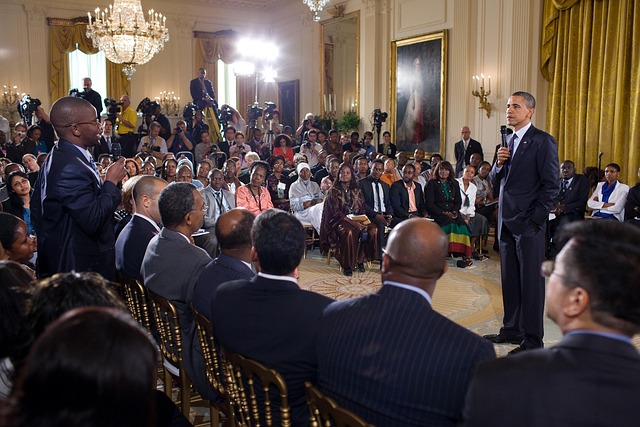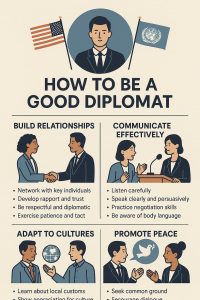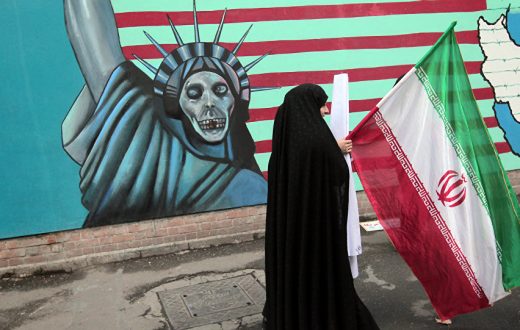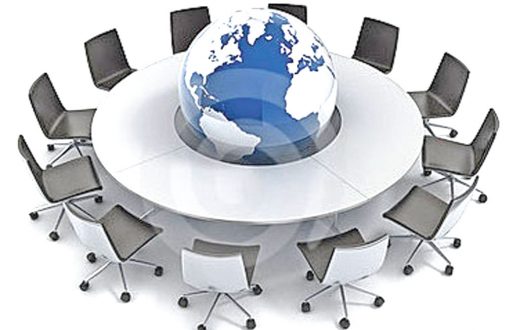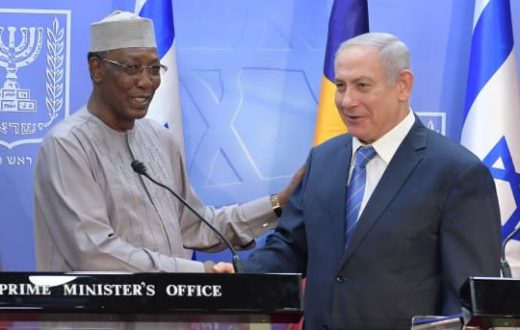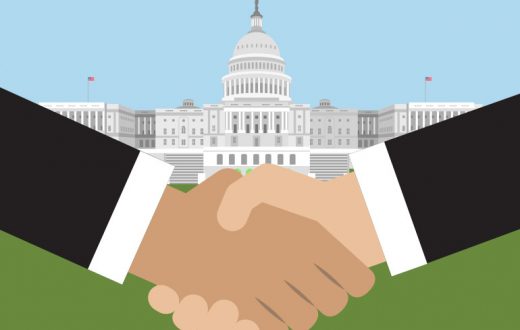Today I’m writing this piece with a smile on my face and hope in my heart; aiming to inspire hope for our students and future young diplomats, emphasizing the power of positive thinking and perseverance even when facing challenge :))
In a world fraught with geopolitical tensions, climate crises, and shifting alliances, diplomacy remains humanity’s best tool for resolving conflict without war. Diplomats serve as the face, voice, and conscience of their nations abroad. They mediate, negotiate, build trust, and—most importantly—preserve peace.
Being a diplomat requires good languages and leadership skills, strong analytical, organizational, good judgment, and high integrity. Here is a step by step guide:-
- Cultivate the Right Education and Knowledge
Most diplomats study international relations, law, political science, or economics. Beyond
academic study, great diplomats stay informed about global issues, emerging technologies,
international institutions, history and local cultures.
Master Emotional Intelligence
Emotional intelligence (EQ) is crucial. Self-awareness, empathy, tact, and composure are
key traits for diplomatic success. Managing conflict and maintaining calm under pressure is
an everyday skill. - Communicate with Precision and Purpose
A good diplomat must speak clearly, write persuasively, and listen actively. Mastering
multiple languages and articulating positions without misunderstanding is critical. - Build Relationships, Not Just Networks
Diplomacy is built on trust and long-term relationships. Being reliable, consistent, and
culturally respectful builds a strong foundation. - Be Culturally Intelligent
Understanding and respecting local traditions, religions, and protocols prevents costly
missteps and fosters deeper cooperation. - Master the Art of Negotiation
Great diplomats understand their red lines and those of their opponents. They prepare
alternatives, seek win-win outcomes, and stay patient through long negotiations. - Defend National Interests with Integrity
Defending your country abroad doesn’t mean being confrontational. Good diplomats are
principled, respectful, and strategic. - Promote Peace and Mediation
Peacebuilding and conflict mediation are essential parts of modern diplomacy. Diplomats
often act as neutral facilitators in high-stakes negotiations. - Embrace Digital and Public Diplomacy
Public diplomacy through social media and digital platforms is now standard.
Communicating national positions online, combating misinformation, and building global
trust are all modern diplomatic functions. - Be Adaptable and Resilient
Diplomatic life includes instability, tough postings, and long absences from family.
Resilience, adaptability, and well-being are critical to lasting success.
Conclusion: Diplomacy Is Service, Not Show
Being a good diplomat is not about fame but about service. Diplomats must act with
humility and wisdom. They carry the hopes of nations and play a vital role in preventing
conflict and promoting progress.
Case Studies: Diplomacy in Action
- United States: Shuttle Diplomacy in the Middle East
One of the most prominent examples of American diplomacy was Henry Kissinger’s ‘shuttle
diplomacy’ during the 1970s Arab-Israeli conflict. Kissinger traveled repeatedly between
Egypt, Israel, and Syria to negotiate disengagement agreements. His approach emphasized
relentless communication, backchannel negotiation, and trust-building between
adversaries. This form of diplomacy set a precedent for American involvement in peace
processes around the world. - Sudan: African Union and IGAD Mediation
Following the secession of South Sudan in 2011, Sudan has faced continuous internal strife
and international pressure. In 2019, after months of popular protests, Sudanese military
leaders and civilian groups reached a power-sharing agreement. This was made possible by
mediation from the African Union and the Intergovernmental Authority on Development
(IGAD). Diplomatic efforts centered on balancing demands for justice, stability, and
democratic transition.
- United Kingdom: Soft Power and the Commonwealth
The United Kingdom has long relied on soft power through its leadership in the
Commonwealth, education exports, and media influence. British diplomats have skillfully
used cultural diplomacy and international broadcasting (like the BBC World Service) to
maintain global relevance. For example, during Brexit negotiations, British diplomats
navigated highly complex EU relations while maintaining strategic alliances in Asia, Africa,
and the Americas.

